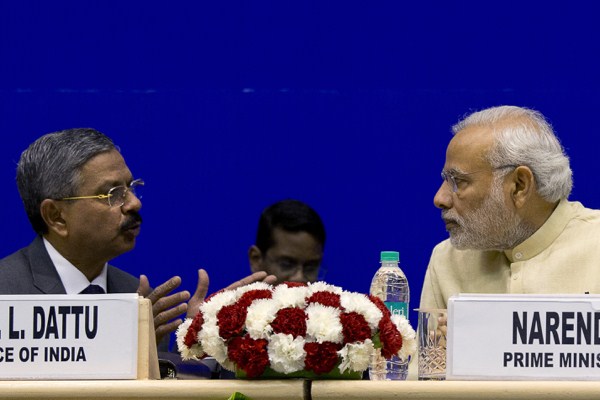In the first few months of 2014, people around the world were united in their condemnation of India’s Supreme Court. At the end of 2013, in a case that became known simply as Koushal, the court refused to strike down Article 377 of the Indian Penal Code, a colonial-era provision banning “carnal intercourse against the order of nature.” The court argued it was the job of Parliament, not judges, to repeal controversial laws and, in doing so, effectively recriminalized non-heterosexual sex.
The decision rolled back decades of small but hard-fought gains by India’s legally, socially and culturally marginalized lesbian, gay, bisexual and transgender (LGBT) community. The spurious legal grounds on which it was based made it all the more painful. Four years earlier, the High Court of Delhi had delivered a powerful and widely celebrated judgment that effectively rendered Article 377 obsolete. That ruling held that the provision violated the rights to non-discrimination, privacy and personal dignity enshrined in India’s progressive constitution. The government at the time raised no objection to the verdict and later, in 2012, India’s attorney general further endorsed the ruling by confirming he found “no legal error in it.”
However, if the Koushal decision tainted the Supreme Court’s reputation as a defender of rights, the period since has rehabilitated its image. In 2014 alone, the court decided 15 highly significant human rights cases, and many of the decisions marked major steps forward in the protection of basic rights. Human rights cases account for a shrinking portion of the Supreme Court’s docket, limiting its chances to redress past mistakes and strengthen rights protections. Taken together, therefore, the 15 cases represent a uniquely progressive year, one that could well be recorded as a landmark in the court’s history.

